Buy a rebound tester for brick online, which with a test strength range of 6-30 MPa. The brick rebound hammer featuring a compact and ergonomic design, the Rebound Hammer Tester for Brick is portable and easy to use in various construction and inspection settings.
Features
- Compact Design: The tester is compact and lightweight, making it easy to handle and maneuver, even in tight spaces or overhead applications.
- Durable Construction: Constructed from stainless steel materials, the tester is built to withstand the rigors of construction environments and ensure long-term durability.
- Multiple Testing Modes: Many testers offer multiple testing modes, such as single-point, surface, or average testing, to accommodate different testing scenarios and provide comprehensive assessment capabilities.
- Battery-Powered Operation: Battery-powered operation provides portability and convenience, allowing for on-site testing without the need for external power sources.
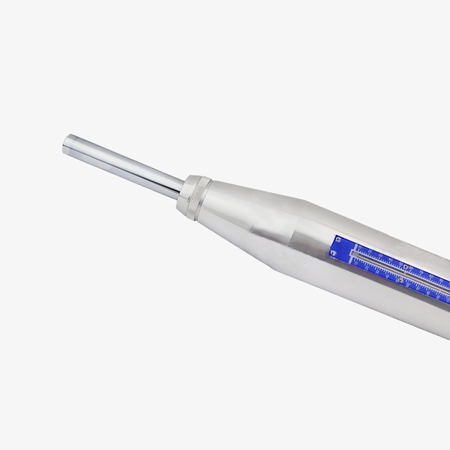
Made of high quality materials
- The shell has high elasticity and is wear-resistant.
- The center guide rod is made of imported material, with high precision and wear resistance.
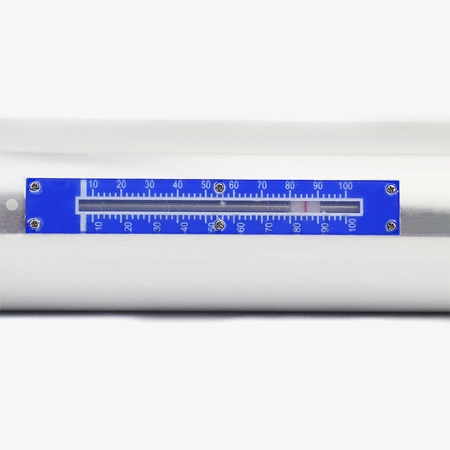
The scale is clear and easy to read
- The whole body is made of stainless steel and does not rust.
- The friction between the pointer shaft and the pointer slider is uniform to ensure accuracy.
Dimension Unit (mm)
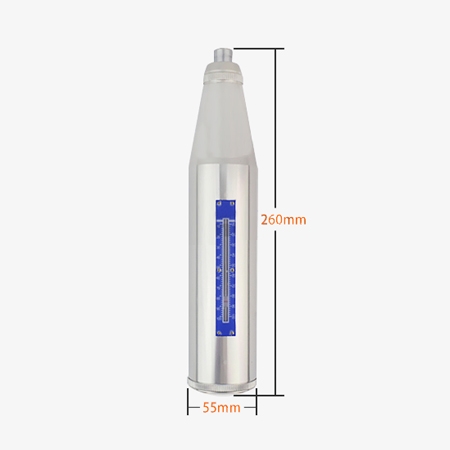
Applications
Rebound hammers find extensive applications in the construction and engineering industries for evaluating the quality, strength, and integrity of concrete structures. Some of the key applications include building inspection, project acceptance, cement plant inspection and highway bridge inspection.
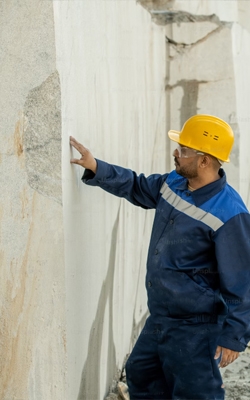
Project Acceptance
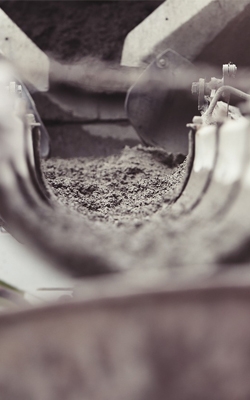
Cement Plant Inspection

Highway Bridge Inspection

Building Inspection
| Model | SISCO-RH-ZC4 |
| Strength Measurement Range | 6-30 MPa |
| Nominal Energy | 0.735J |
| Working Length of Tension Spring | 61.5±0.3 mm |
| Friction of Pointer Slide | 0.5±0.1 N |
| Stroke of the Hammer | 75±0.3mm |
| Spherical Radius of the end of the Striker | 25±1mm |
| Anvil Rate Rebound Gauge | 74±2 |
| Weight | 2kg |
Q1: How accurate are rebound hammer tests?
A1: Rebound hammer tests provide a quick and convenient way to assess the relative hardness or strength of concrete. However, the accuracy of the test results can be affected by various factors such as surface roughness, moisture content, and the presence of aggregates. It is essential to follow standardized testing procedures and interpret the results cautiously.
Q2: Is calibration necessary for rebound hammers?
A2: Yes, regular calibration of rebound hammers is essential to ensure the accuracy and reliability of test results. Calibration should be performed according to manufacturer guidelines or industry standards to maintain the instrument's performance over time.
Q3: Can rebound hammer testing be performed on all types of concrete?
A3: Rebound hammer testing is suitable for assessing the hardness or strength of most types of concrete, including normal concrete, lightweight concrete, and high-strength concrete. However, special considerations may be required for highly porous or heavily reinforced concrete structures.
Tips: How to Maintain Rebound Hammer Tester for Brick?
Maintaining a Rebound Hammer Tester for Brick is essential to ensure accurate and reliable performance over time. Here are some maintenance tips:
- Regular Calibration: Schedule regular calibration checks for the rebound hammer tester according to the manufacturer's recommendations. Calibration ensures that the instrument provides accurate readings.
- Cleaning: After each use, clean the surface of the tester and the striking mechanism with a soft, dry cloth to remove any dust, debris, or residues. Avoid using harsh chemicals or solvents that may damage the instrument.
- Storage: Store the rebound hammer tester in a clean, dry, and dust-free environment when not in use. Use the provided carrying case or protective cover to prevent damage and minimize exposure to external elements.
- Battery Maintenance: If the rebound hammer tester is battery-powered, monitor the battery level regularly and replace the batteries as needed. Ensure that the batteries are inserted correctly and avoid leaving them in the tester for extended periods without use.
- Avoid Excessive Force: Use the rebound hammer tester within the specified operating parameters and avoid applying excessive force during testing. Excessive force may damage the instrument or affect the accuracy of the readings.
Thank you for buying industrial test and measurement equipment on SISCO.com, all products sold by SISCO and the partner cover a 12 months warranty, effective from the date of receiving the products.
What is covered?
SISCO is responsible for providing free spare parts, and free technical support to assist the customer to repair the defective products until the problem is solved.
What is not covered?
- Product purchased from anyone other than a SISCO store or a SISCO authorized reseller.
- Expendable parts.
- Routine cleaning or normal cosmetic and mechanical wear.
- Damage from misuse, abuse or neglect.
- Damage from use of parts other than SISCO approved.
- Damage from use outside the product’s usage or storage parameters.
- Damage from use of parts not sold by SISCO.
- Damage from modification or incorporation into other products.
- Damage from repair or replacement of warranted parts by a service provider other than a SISCO authorized service provider.
- Damage caused by the application environment not meeting the product usage requirements and the failure to perform preventive maintenance.

